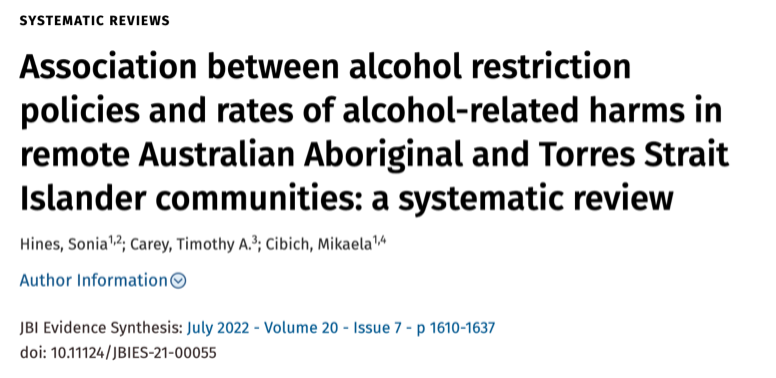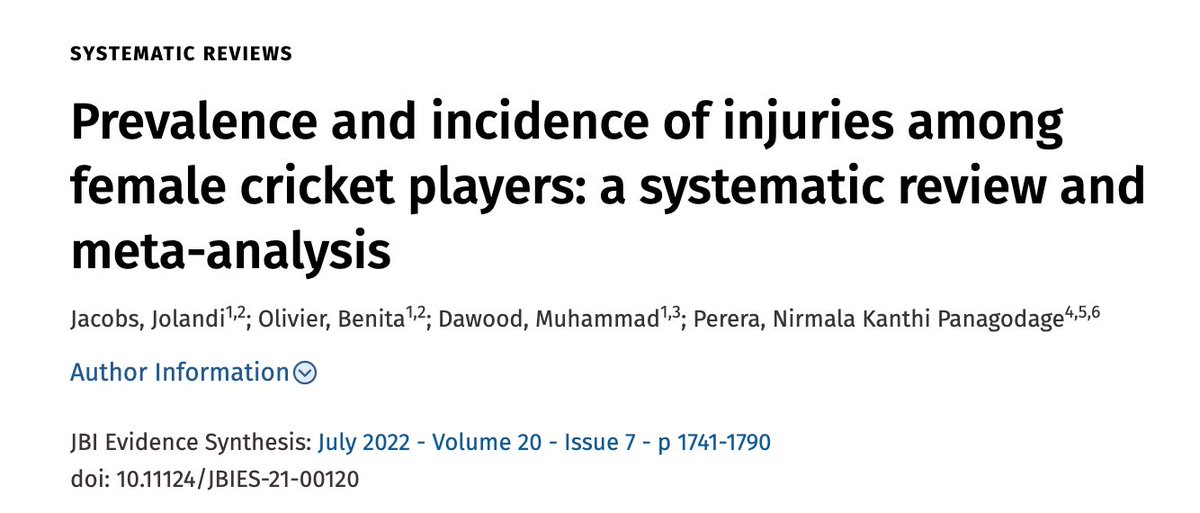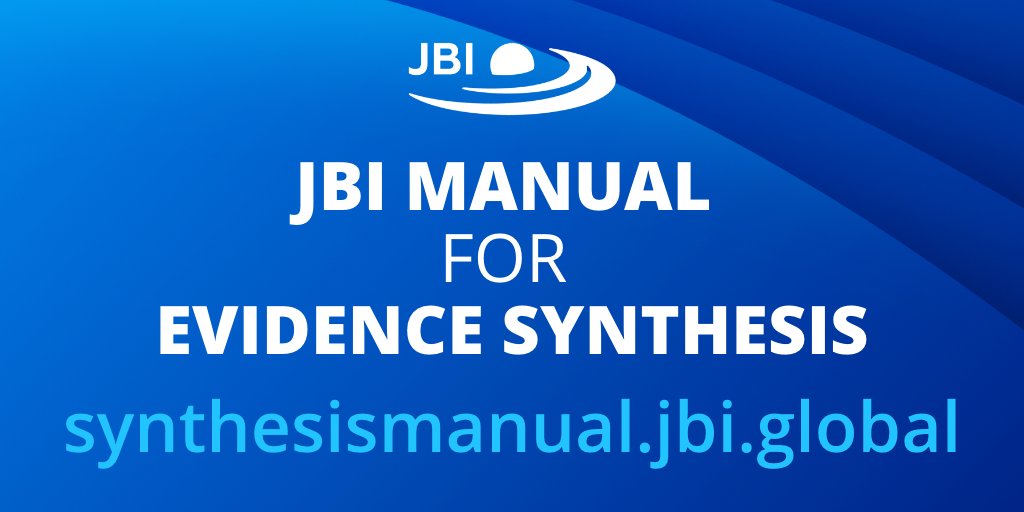The latest issue of the JBI Evidence Synthesis journal is out now and includes THREE diverse evidence syntheses, each employing a different #JBIMethodology. 

The featured systematic review is a review of etiology and risk which examines the rates of 3 harms of interest in remote communities where alcohol restriction policies are in place for Aboriginal and Torres Strait Islander people: journals.lww.com/jbisrir/Fullte… 

Systematic reviews of etiology & risk factors assess the relationship (association) between certain factors (whether genetic or environmental for example) and the development of a disease or condition or other health outcome.
A qualitative review explores the experiences of children growing up with a parent who has military-related post-traumatic stress disorder. journals.lww.com/jbisrir/Abstra… 

Qualitative methods & data are increasing in usage in #EBHC research. Instead of quantifying or statistically portraying the data or findings, qualitative research focuses on individuals & gives voice to the patient/client or provider in the healthcare decision-making process.
Finally, a systematic review of incidence and prevalence looked at injuries among female cricket players of all ages, participating in all levels of play. journals.lww.com/jbisrir/Abstra… 

Prevalence & incidence data reviews have the potential to better inform social & healthcare professionals, policy makers & consumers in decisions made relating to a range of healthcare decisions, but particularly regarding the burden of healthcare both now and in to the future.
To learn more about the rigorous JBI Methodologies that are used in these 3 systematic reviews, check out the JBI Manual for Evidence Synthesis: jbi-global-wiki.refined.site/space/MANUAL 

All systematic reviews published in JBI Evidence Synthesis use JBI's gold standard Methodology.
See the latest issue of JBI Evidence Synthesis for these systematic reviews, and more: journals.lww.com/jbisrir/pages/…
#JBIEBHC #JBIMethodology
See the latest issue of JBI Evidence Synthesis for these systematic reviews, and more: journals.lww.com/jbisrir/pages/…
#JBIEBHC #JBIMethodology

• • •
Missing some Tweet in this thread? You can try to
force a refresh











